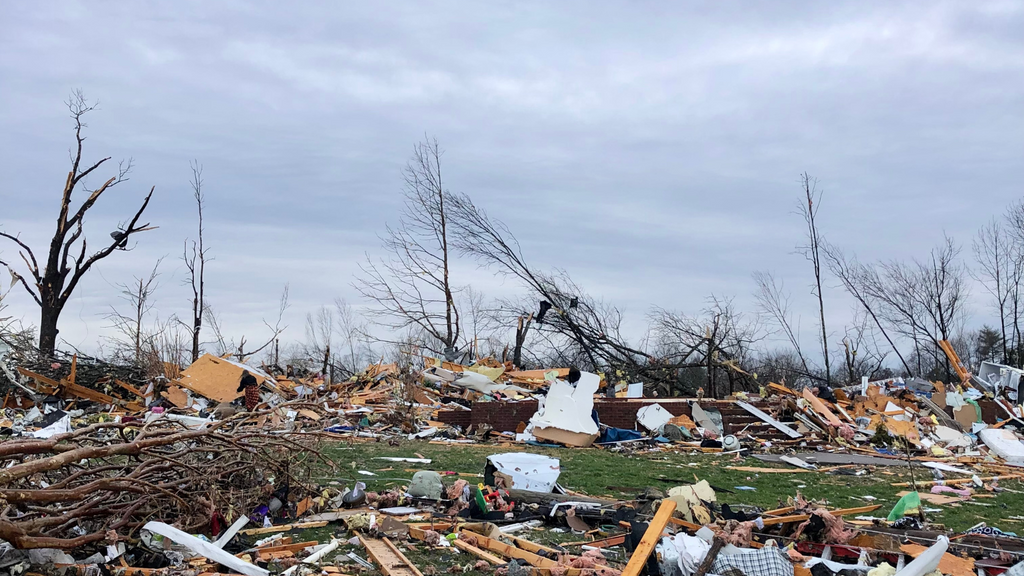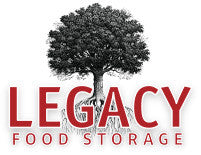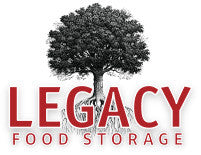
The Power of Mental Preparedness
Tornados are not anything like they say. They say it sounds like a freight train. They say it’s green and menacing. But to be honest, often you don't even know there is a tornado. It's just a loud storm and maybe an alert or siren. Even when a tornado is a few yards from your house, you may not even know it existed until daybreak.
It's the next morning after the tornado when everything really starts picking up speed.
I started writing about the mental aspects of emergency preparedness after surviving an EF4 tornado that ripped through our community, leaving a trail of devastation in its wake. The physical scars are evident, but the psychological wounds run deeper.
After a disaster most focus on the physical wounds. But, it’s hard to ignore that over 45% of those who go through a natural disaster will inevitably have symptoms of PTSD, depression, or anxiety. I was disappointed by the lack of focus on mental preparedness in most survival guides, so I set out to change that.
Physical preparation is crucial, undoubtedly. But it’s the mind that ultimately determines whether we survive, thrive, or succumb to chaos. Here's the mental skills I learned in the aftermath of the tornado:
Building Mental Resilience
Whatever life throws at you isn't just a test of physical preparedness. It's a crucible for the mind, too. Mental toughness, the ability to persevere through adversity, is the unsung hero in disaster survival. I've witnessed well-prepared individuals crumbling at the first sign of trouble, while unlikely neighbors could thrive without much physical preparedness.
All of the food and gear won't help you if you aren't mentally fit enough to use it!
Luckily, we have thousands of years of history of people trying to survive adversity, and many of them passed on their tips to us. Stoicism, the ancient philosophy of endurance and reason, offers invaluable tools for cultivating mental resilience. It emphasizes understanding that we cannot control external events, but we can control our response to them.
With that in mind, here are some practical tips I learned to help keep my mind tough during adversity:
- Mental rehearsal: Visualize potential crisis scenarios and practice decision-making under pressure. The more possibilities you run through your mind, the better you'll be prepared. For instance, you may have a tornado shelter in the basement, but what happens when your son has a broken leg and has to hobble down two flights of stairs?
- Physical conditioning: Physical fitness makes mental resilience so much easier. When your body feels good and works well, you can make up for a lack of supplies to some extent. Making your body do something it doesn’t want to do also prepares the mind for future adversity.
- Mindfulness: It's easy to get overwhelmed with too much when in a disaster. Practice staying in the present moment to avoid getting overwhelmed. Don’t focus on why it happened or how hard the future will be.
Disaster planning and practice are not solely about logistics. They are rehearsals for the mind. Make a detailed plan and practice it. Think about all the things that could go wrong and have a plan to overcome it. (What if you have a broken leg?)
Overcoming Fear and Anxiety
As Frank Herbert said in Dune, "Fear is the mind-killer. Fear is the little death that brings obliteration." In disaster situations, fear is the #1 showstopper. Sadly, fear often rises in the exact moments you need it not to.
If you want to survive, you have to think, and that means controlling your fear.
Recognizing fear as a natural human emotion but we must be careful of letting it dictate our actions. To see through fear, we can apply logic to differentiate between what is truly threatening and what we merely perceive as such.
Of course, everyone feels fear. Acknowledging that you will feel scared is the first step to overcoming it. Panic is not helpful in most situations. Plus, the second you panic, everyone around you will start panicking too.
Here are some of the practices I found helped me manage my anxiety:
- Deep breathing exercises: These can quickly calm the nervous system and keep your body ready to respond. You'll probably need to keep moving during an emergency, but that doesn't mean you can't slow your breathing down, too.
- Just one thing: In an emergency, you don't have time to sit down and meditate. However, you can turn the task at hand into a meditation by focusing only on the next thing. Just figure out what the next thing is and do that. There is no need to play through the whole situation right now.
- Building a support system: Having a plan where everything has to go right is a recipe for disaster - and that includes you. You won't be functioning at your best all the time. You need someone else to take hold of the reins from time to time.
- Consider Logic: Is your fear really a fear or is it your mind making it worse than it actually is. Think back to when you were a kid and thought something was under your bed. The same thing happens later in life. Ask yourself if it makes sense.
Fear can be a huge driving force, but ignoring it isn't the way to go! You need a plan to handle your fears appropriately so that they don't handle you.
The Power of Community and Support
Humans are inherently social creatures. During an emergency, we need people even more, not less. In the face of adversity, interconnectedness becomes a fortress for our minds.
In the wake of the tornado, our community rallied together. Neighbors helped neighbors, and strangers became friends. Locals from across town brought in food and water to tornado-affected areas. It was the community that carried many people through the disaster!
When you're considering how to be best prepared, look for ways to help your family and neighbors be prepared, too. Strong relationships are vital for a prepared mind.
Think of the community as a backup battery. You can do your best to prepare mentally and physically but having that backup can be life or death in a larger scale disaster.
Get Your Mind Prepared
Being mentally prepared for an emergency scenario is just as important as being physically prepared. Many pass this over without much thought since it seems like an abstract topic. However, by practicing a few simple exercises and the tips I shared above, you can start mentally preparing yourself now, and it doesn’t cost a thing.
About the Author:
Jason Hitchcock has an engineering and problem-solving background and is the founder of Survivalstoic.com. He is an avid outdoorsman, survivalist, and competitive shooter. He enjoys researching the best and most practical solutions for the problem at hand, studying stoicism, and finding innovative ways to be prepared for emergencies and live a self-sustaining lifestyle.
Tags
- All
- 25 year food
- 25 year shelf life food
- 72 hour kit
- Best food storage types
- Best long-term food storage
- Blizzard preparedness
- Budgeting
- canning
- Certified GMO-free Emergency foods
- Certified GMO-free foods
- Coffee
- Comparison of emergency food methods
- Composting tips
- Dangers of genetically modified foods
- dehydrated food
- Edible Wild Plants
- emergcy preparedness
- Emergency Cooking
- Emergency Food
- Emergency food Christmas gifts
- emergency food storage
- Emergency Food Supply
- Emergency food supply recommendations
- Emergency Planning
- Emergency Preparedness
- Emergency preparedness advice
- emergency preparednesss
- Emergency Supplies
- Emergency supplies checklist
- Emergency Survival
- emergency survival gear
- Emergency survival kit checklist
- Emergency Survival skills
- exercise
- Family emergency preparedness
- Family emergency preparedness plan
- Family Preparedness
- Food Storage
- Food storage 25 year shelf life
- Food storage amounts
- Food storage Christmas
- Food storage containers long term
- Food Storage Secrets
- Food storage serving size
- Food storage types compared
- freeze dried food
- Freeze dried food storage
- freeze dried meats
- Freeze-dried emergency food storage
- Fruit Trees
- Gardening
- Getting Started
- Gluten-free food Storage
- Gourmet emergency food
- Healthy food storage
- How much emergency food to store
- Improved emergency preparedness
- Jared Markin
- Jared Matkin
- Legacy Premium
- Lessons learned from Hurricane Sandy
- Lessons learned from natural disasters
- long-term food storage
- Long-term Food Storage Guidelines
- Long-term Food Storage tips
- Long-term water storage
- Mental Emergency Preparedness
- Mental toughness
- Money-saving tips
- Natural disaster planning
- Natural Disasters
- Perfect Christmas gifts
- Pet Emergency preparedness checklist
- Pet Emergency preparedness kit
- Pet Emergency Survival tips
- Pets and Emergency Preparedness
- Plant Foraging
- portable solar panels
- portable solar power
- portable water filters
- protein drinks
- Risk of genetic modification
- Seed saving and storage
- Seed saving guide
- Self-reliance
- Self-reliant practices
- Shelf Life
- Solar Cooking
- Solar Ovens
- Special Dietary needs
- Stranded in a car in a blizzard
- Survival food
- Survival Gear
- survival kit
- Survival kits
- Survival Ovens
- Survival Skills
- survivalist gear
- suvival kit
- Tree Pruning tips
- Tree Trimming basics
- unique ideas
- water bottle with filter
- water filter
- water filter straw
- water filters
- Water Filtration
- water pitcher with filter
- water pitchers with filters
- Water purification
- Wild Food Foraging
- Winter composting
- Winter driving
- Winter preparedness tips
- Winter storm preparedness tips
- Winter Survival







